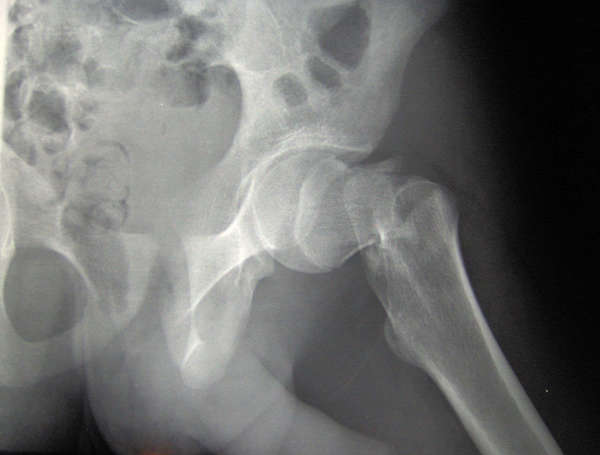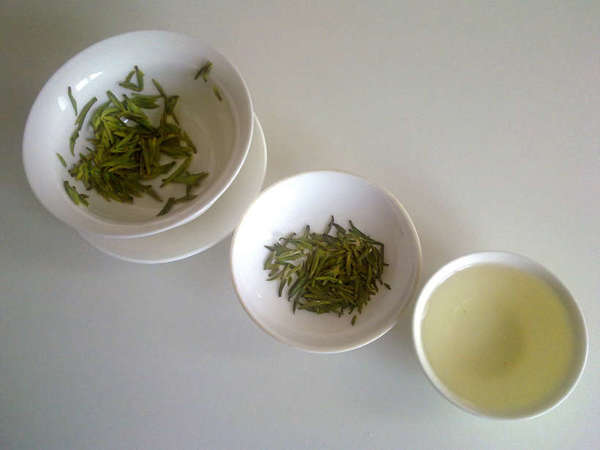Tea, Bone Density, and Osteoporosis
Wikipedia: Bone_densityLast Updated: Nov. 11, 2016
Quick summary:
- Drinking tea may have a positive effect on bone health.
- Tea promotes bone health through many different mechanisms.
- Green tea may have a stronger effect than black tea, but this is not certain.
Osteoperosis is a disease or condition in which bone density decreases, increasing the risk of fractures. The condition becomes more common with age, and is more common in women, especially after menopause, although it also affects men significantly. The condition can go undetected until a person suffers from a fracture.
Research on tea and bone density
Early research on bone density suggested that high caffeine intake was associated with lower bone density, but this work was due mainly to studies of populations in which coffee drinking was the dominant source of caffeine.[1] A more recent literature review firmly establishes that caffeine is not a risk factor.[2] It is now thought that, if anything, tea may have a protective effect against osteoporosis.Although tea consumption has been positively associated with bone density in some studies, it isn’t clear whether tea actually reduces the risk of fractures in women due to osteoporosis.[2] The Linus Pauling Institute in their article about tea and health writes that "It is still unclear whether tea consumption is associated with increased bone mineral density and/or reduced risk of osteoporotic fractures."
 Hip fractures (shown here in an x-ray) are one of the most common and also most dangerous types of fractures associated with osteoporosis. Photo © Booyabazooka (Wikimedia Commons), CC BY-SA 3.0.
Hip fractures (shown here in an x-ray) are one of the most common and also most dangerous types of fractures associated with osteoporosis. Photo © Booyabazooka (Wikimedia Commons), CC BY-SA 3.0.How could tea affect bone density?
Tea contains a number of substances that could possibly impact bone density, including caffeine, fluoride, and flavonoids, a type of polyphenols that act as antioxidants. Oxidative stress is known to play a role in bone loss, and one possible mechanism through which tea could promote bone health is through the antioxidants preventing or reducing this oxidative stress.[3]Green tea has been studied extensively in relation to osteoporosis and bone health. The polyphenols in green tea seem to protect against bone loss induced by low estrogen post-menopause, by mechanisms that are well-understood. These same chemicals may also reduce bone loss caused by chronic inflammation. [3]
Another proposed mechanism is that green tea may reduce bone metabolic disorders by removing cadmium, a toxic heavy metal, from the body. Green tea may also prevent excessive iron absorption, which can be harmful. The polyphenols in green tea may also favor bone formation and suppress bone resorption. Overall, green tea seems to positively affect bone health through a variety of mechanisms, some of which are better understood than others.[3]
Do different tea types (black, green, oolong, etc) have different benefits?
 Green tea may offer greater benefits to bone density than other tea types, but the research is not conclusive. Public domain photo by Alessandro Martini
Green tea may offer greater benefits to bone density than other tea types, but the research is not conclusive. Public domain photo by Alessandro MartiniOther protective factors
Osteoporosis is influenced by a wide variety of factors, including diet, lifestyle, genetics, and interactions with medications and other health conditions. The Mayo Clinic, in their overview of the symptoms and causes of osteoporosis, points to a sedentary lifestyle, excessive alcohol or tobacco use, as risk factors. They advocate weight-bearing activities such as walking, running, jumping, dancing, and weightlifting as particularly beneficial. Low calcium intake and inadequate nutrition overall can also be a risk factor, so a well-balanced diet with adequate calcium intake can also be beneficial.References:
1. Hegarty VM et. al. Tea drinking and bone mineral density in older women., American Journal of Clinical Nutrition, Vol. 71, No. 4, pp. 1003-7, April 2000.
2. E. J. Waugh et. al. Risk factors for low bone mass in healthy 40–60 year old women: A systematic review of the literature, Osteoporosis International, Vol. 20, No. 1, Jan. 2009.
3. Chwan-Li Shen et. al., Green tea and bone metabolism, Nutrition Research, Vol. 29, No. 9, Sep. 2009, pp. 684.
4. Epidemiological Evidence of Increased Bone Mineral Density in Habitual Tea Drinkers, Archives of Internal Medicine (JAMA Internal Medicine), Vol. 162, No. 9, 2002, pp. 1001-1006.

